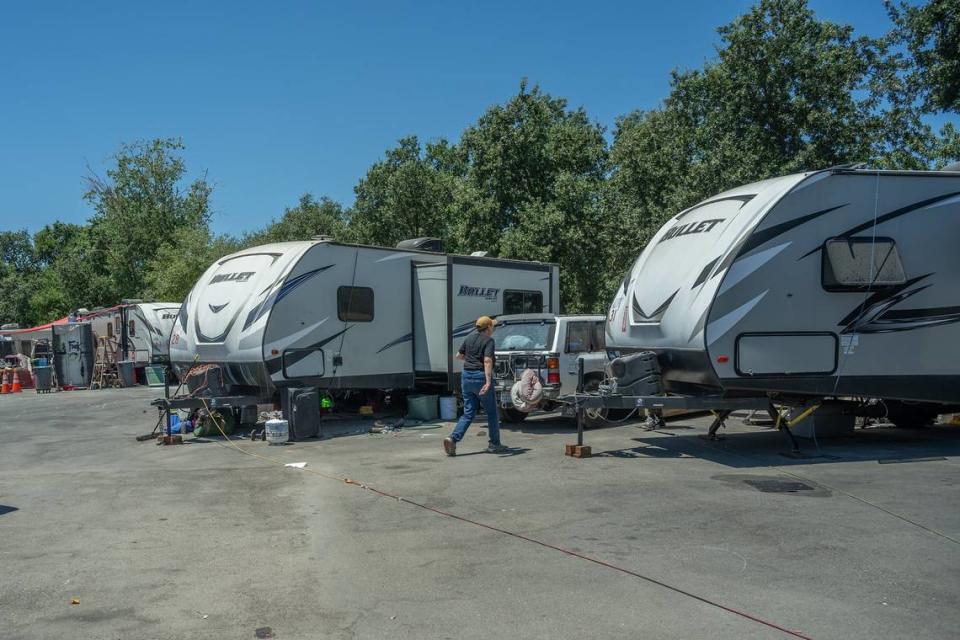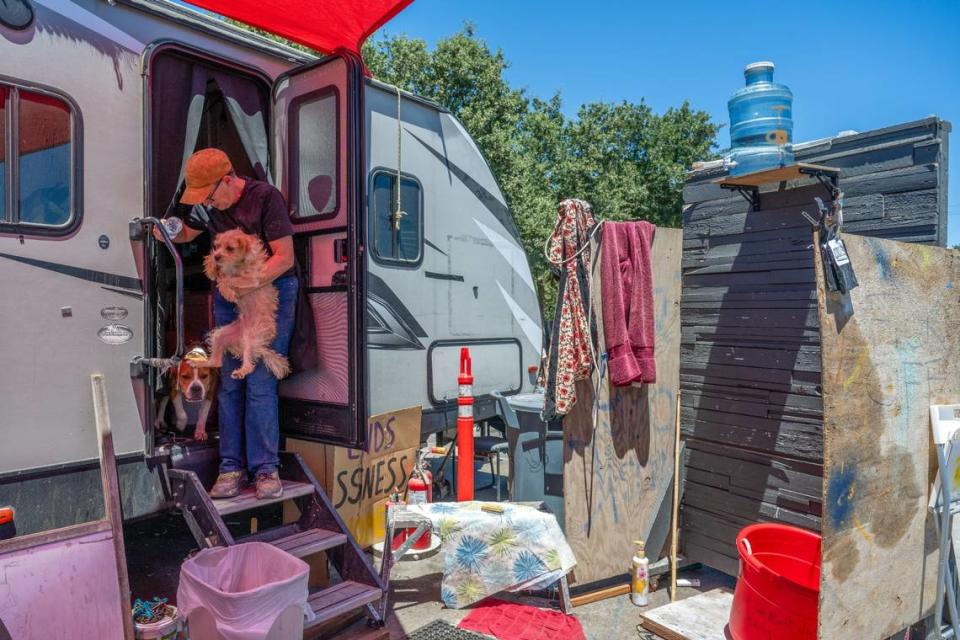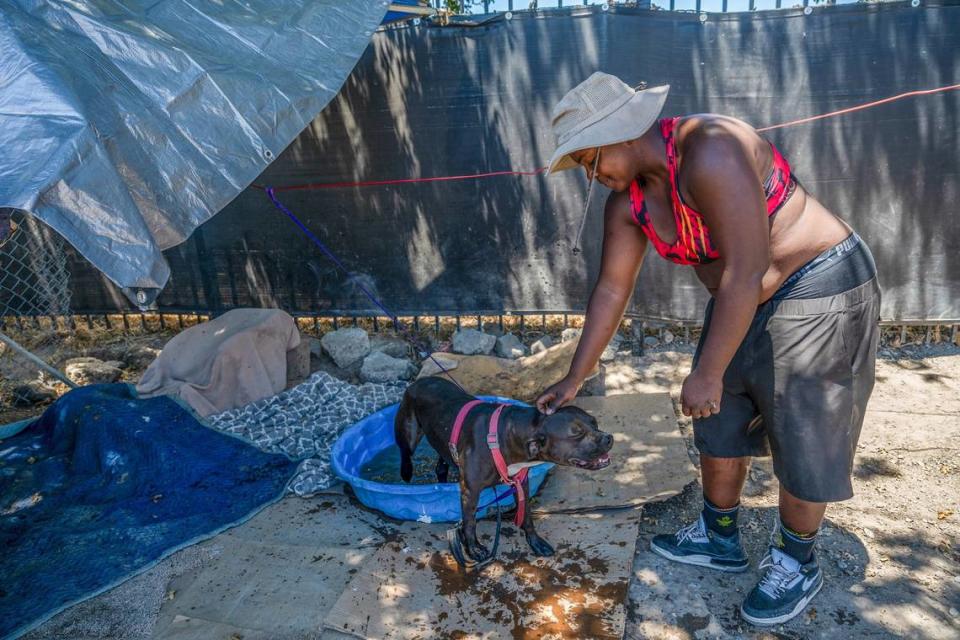Sacramento County stops delivering water to homeless as heat wave starts. Here’s why
Sacramento County stopped delivering water to homeless camps Monday — the first day of an eight day stretch with forecast temperatures over 100 degrees.
Alaytreya Gregory, 31, was surprised when the delivery didn’t show up Monday, when temperatures reached 103 degrees, at Camp Resolution in North Sacramento, where she lives in a city-issued trailer without air conditioning.
She would go buy water at the store for her and her two dogs, she said, but her food stamps don’t get refilled until Wednesday.
“I’m not really sure what to do,” said Gregory, who became homeless after her mother died. “I may go door to door and ask, but people tend to get mad about that. I don’t have any cash on hand right now.”
During the two years she’s stayed at Camp Resolution, she has never been offered shelter or housing, she said.
Twana James is also living at Camp Resolution, was crying when reached by a reporter Tuesday morning.
“We have no water, we have nothing,” James said. “It’s just miserable. I don’t know how to get water today.”
The county started delivering water to homeless camps in 2020 amid the COVID pandemic, using federal American Rescue Plan Act funds, said county spokeswoman Janna Haynes. The county contracted with nonprofit SANE for $231,458 for 18 months of water delivery. They were delivering 16 pallets of water a week and in June delivered to 34 camps. But that contract just ended.
“Funding for these services have been exhausted,” Haynes said. “The COVID-19 pandemic is over and water delivery is now the responsibility of each jurisdiction as part of street management and outreach.”
With the water delivery ending, the county has reserved a stockpile of water to keep on hand through this summer. To access that water cities must work contractor Community HealthWorks to organize pickup during their office hours. City spokesman Tim Swanson did not immediately respond to an email seeking comment on if the city will take over water delivery. The county has been delivering about 70% of the water to the city, Haynes said.
The city of Sacramento just approved a $1.6 billion budget — barely avoiding layoffs due to a deficit. The county just approved a nearly $9 billion budget without the threat of a deficit.
Although the county Board of Supervisors held hours of meetings to discuss the budget, they did not talk about whether ending water delivery to homeless camps amid a heat wave was a good idea. It’s unclear as of Tuesday whether the supervisors were aware of the county water delivery ending.
“This particular program was not specifically discussed in session, but the board knows that COVID related activities were scheduled to end,” Haynes said.

Supervisors Patrick Kennedy, Phil Serna and Rich Desmond did not immediately respond to messages seeking comment.
Homeless activists are asking county officials to rethink the decision.
“The confiscation of water from those experiencing homelessness is a state created danger as it is a life-sustaining necessity that was provided by the county then removed,” said Crystal Sanchez of the Sacramento Homeless Union. “With excruciating heat waves people are likely to die on our streets due to the lack of continued investment in bathrooms and water to those experiencing homelessness.”
From Jan. 1, 2022 to present, at least five deaths have occurred in Sacramento in which heat stroke or hypothermia were causes or significant conditions, according to coroner records. They included Michael Hooper, 49, who was homeless and found in his van in a park after having a heat stroke.
In addition, the county is also removing porta-potties at homeless encampments, including Camp Resolution.
“The COVID-19 pandemic is over and public restrooms are back open and accessible to all users,” Haynes said.
But many businesses lock their bathrooms unless the person buys something — which unhoused people often can’t do, Sanchez said.
“The removal of restrooms from those experiencing homelessness violates their bodily integrity,” Sanchez said. “Without access to restrooms, homeless individuals are forced to urinate and defecate in public, which can have a negative impact on their health and hygiene. Additionally, it can create an unpleasant environment for others.”

The city and county in recent years have opened more cooling centers more often. However the only one in the central city is in the River District with a capacity of 45 and limited capacity for pets. On Monday that site was almost full, with 38 people, including a 10-month-old baby, Haynes said.
There are an estimated 6,600 homeless people living in Sacramento, according to a new report, and about 2,000 shelter beds.


